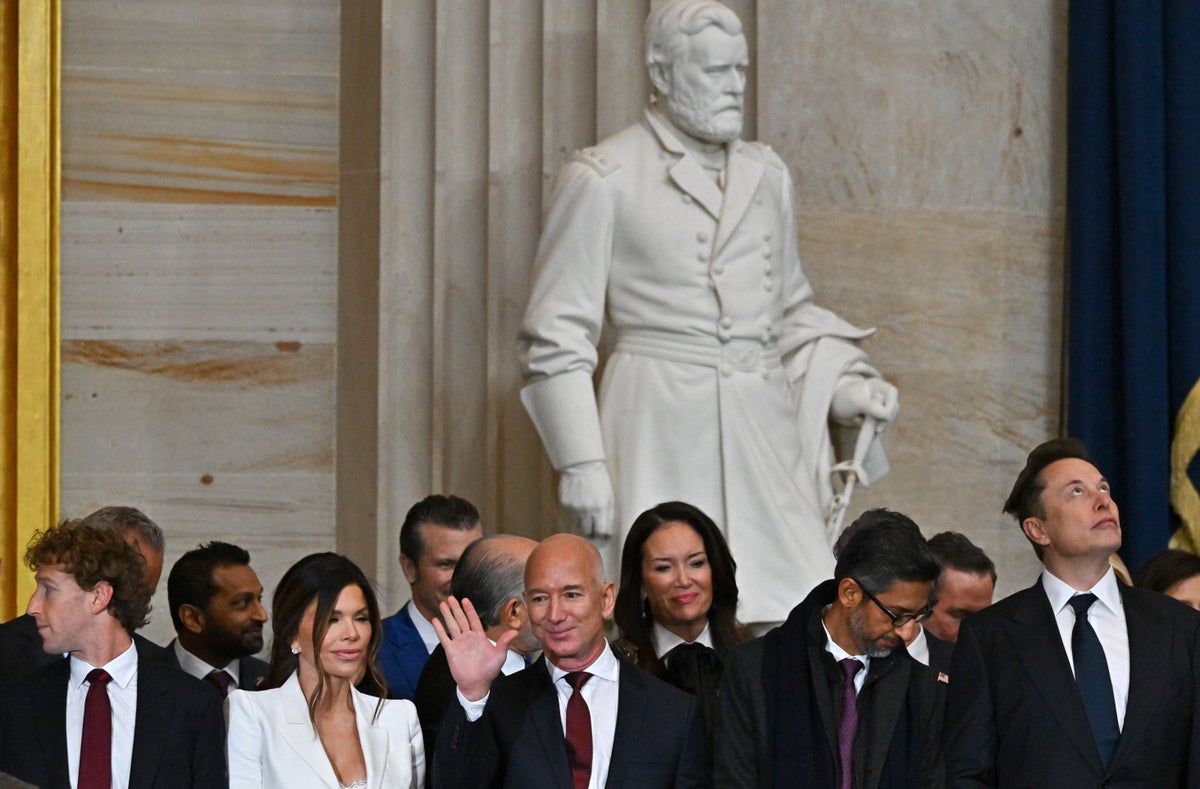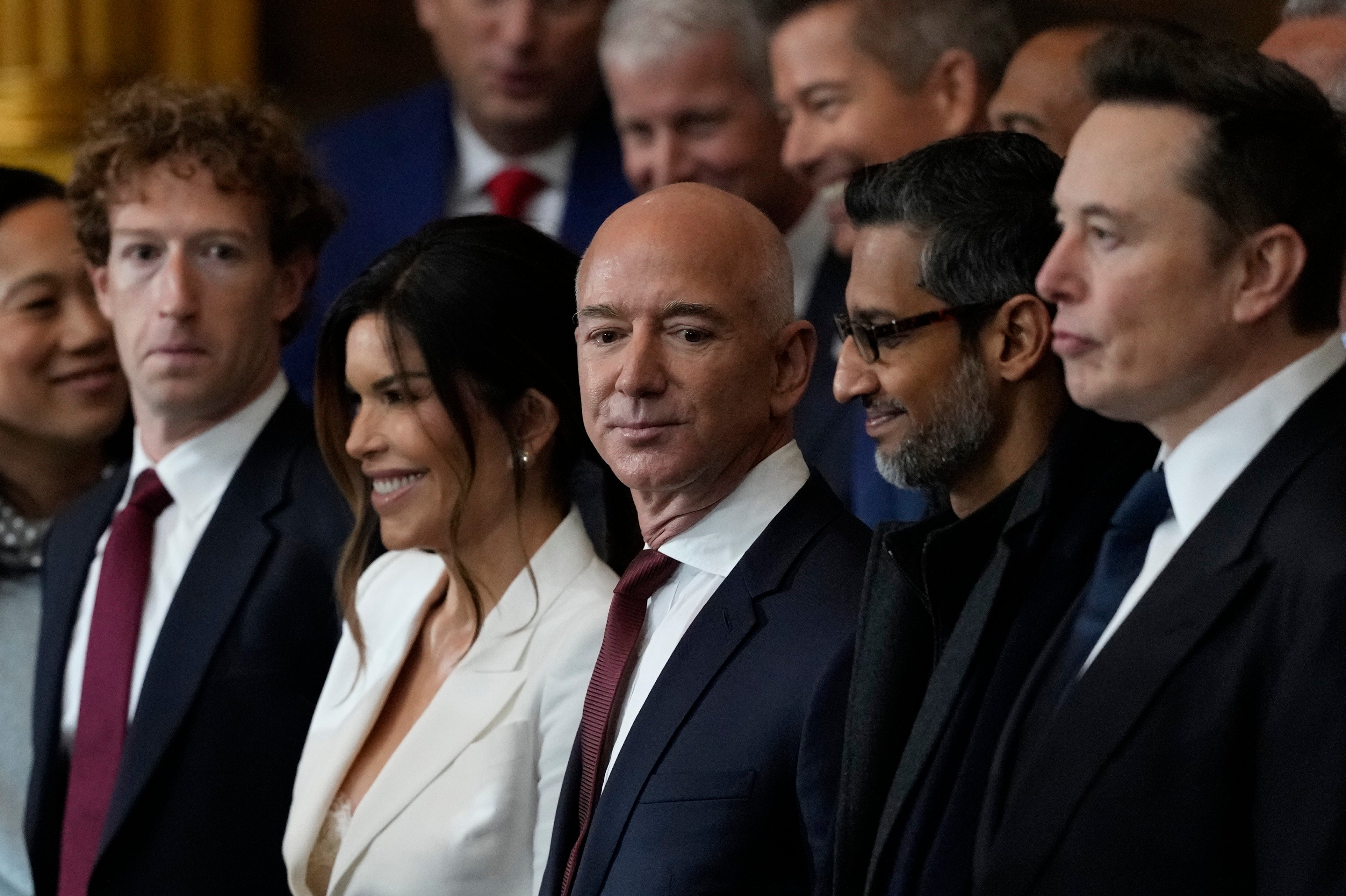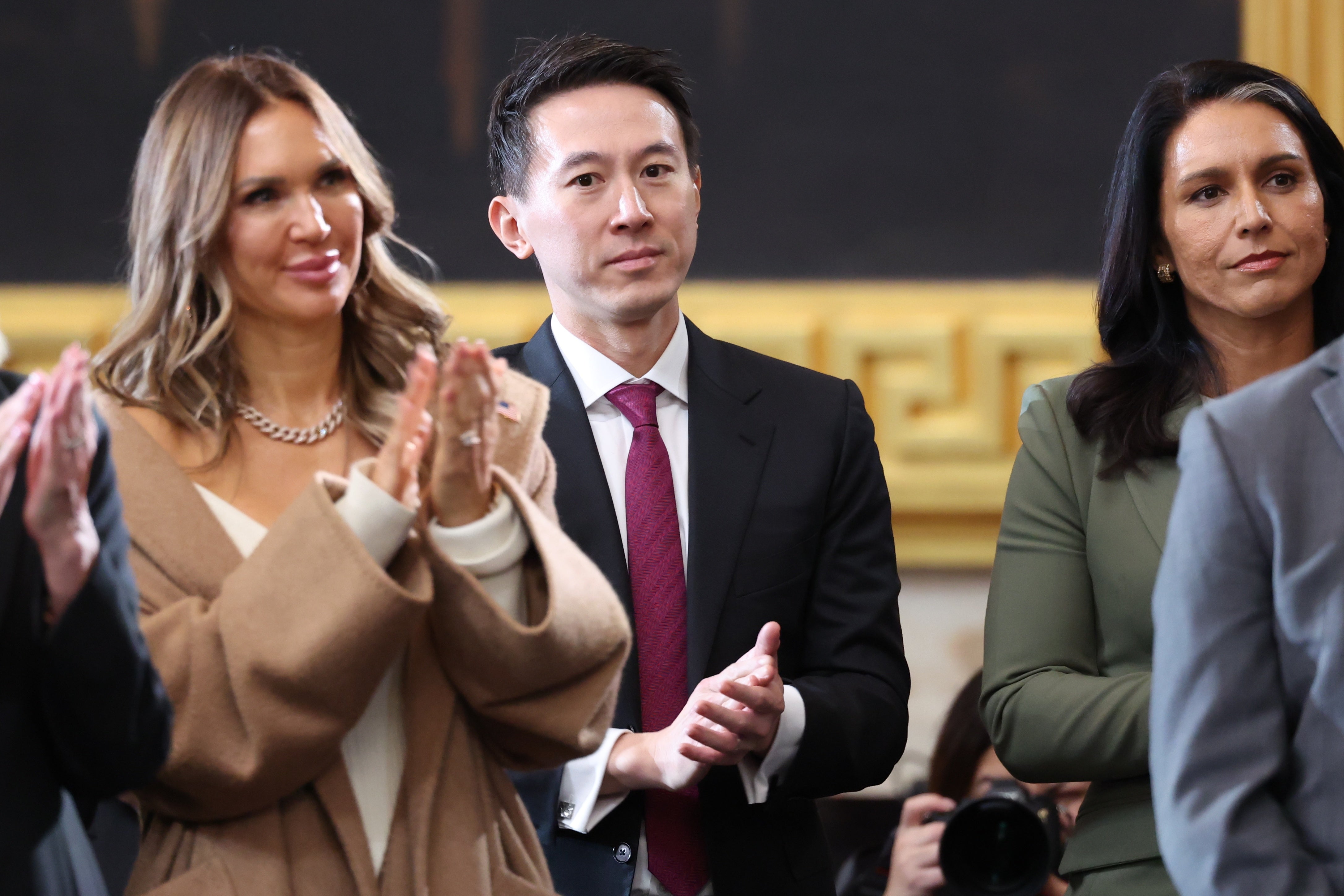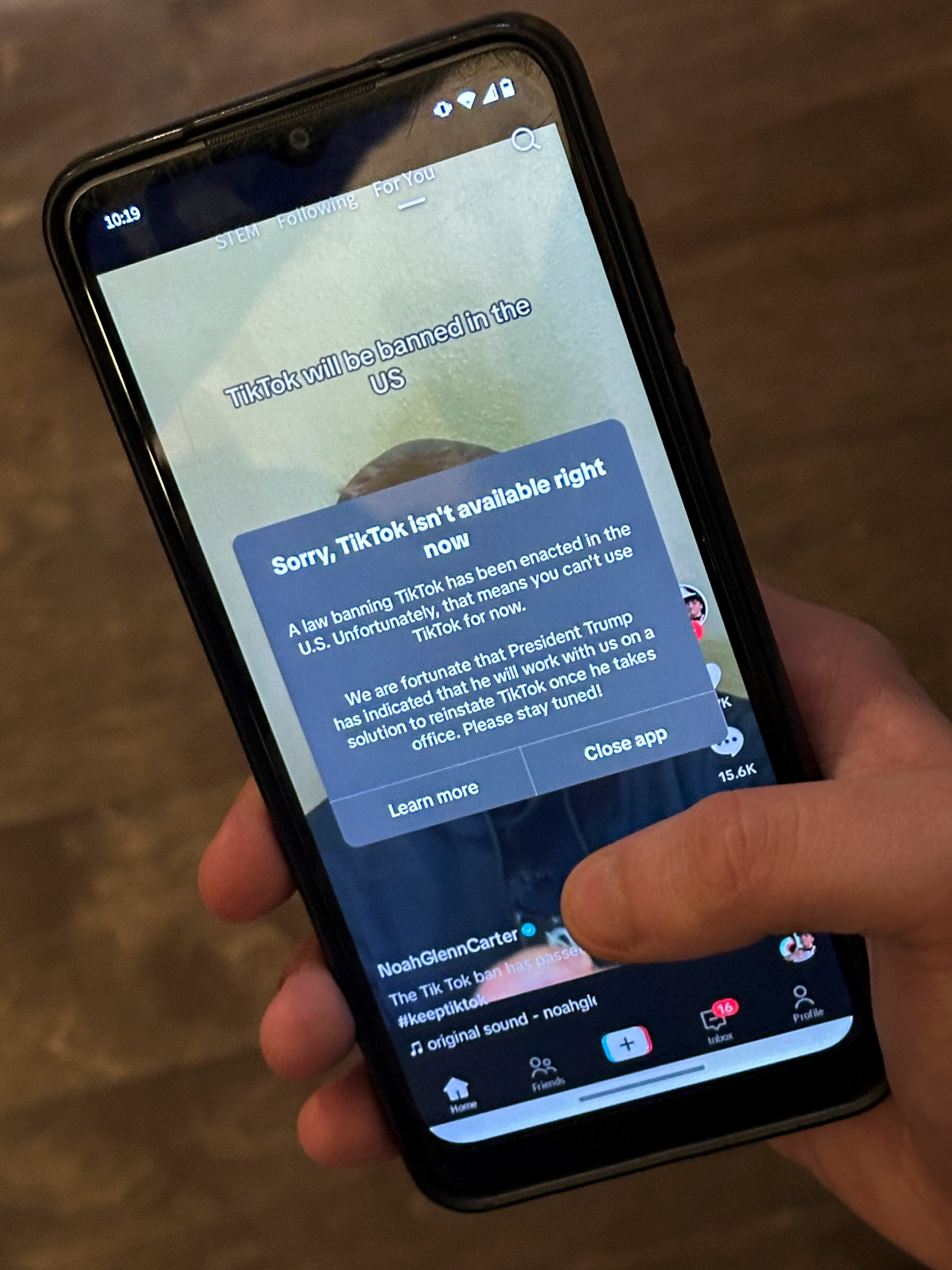
We’ll never know what prayers were whispered by the billionaire tech barons — Facebook founder Mark Zuckerberg, Amazon head Jeff Bezos, Apple CEO Tim Cook, and Google boss Sundar Pichai — as they sat together inside St John’s Church in Washington DC Monday morning.
First the men crowded together at Donald Trump’s pre-inauguration church service, then they attended the ceremony at the Capitol itself, along with Tesla and SpaceX CEO Elon Musk, OpenAI chief Sam Altman, and TikTok boss Shou Zi Chew.
But while we don’t know what they spoke about, their companies have access to our deepest fears, desires, conversations, and life updates.
The power concentrated among these men is stunning when you stop to ponder it. Across the world, Meta regulates the speech of an estimated 3.3 billion daily users — roughly 40 percent of all humanity. Amazon is the world’s second biggest retailer and its fifth biggest employer, governing a global marketplace of smaller vendors. Apple oversees the digital lives of 1.5 billion iPhone users, while SpaceX and OpenAI are shaping the future of space travel and AI respectively.

So we can assume that these men are smart enough — or well enough advised — to understand what they are witnessing: not just the swearing in of a new president, but the birth of a fusion between corporate interests and American authoritarianism.
To understand this new frontier, look at what’s happened to TikTok over the past few days. The Supreme Court upheld a new law Friday, forcing the app to be sold off by its Chinese owners or else effectively banned across the U.S.
Saturday night, ahead of schedule, it went dark. And Sunday morning it was back, after an eleventh-hour promise from then-incoming president Trump to extend TikTok’s deadline. By Monday, TikTok CEO Chew sat next to Tulsi Gabbard, Trump’s nominee for director of national intelligence, during the inauguration.

The case against TikTok was always impossible for the American public to prove or disprove. We cannot know for sure if its Chinese parent company Bytedance has ever secretly handed over our data to China’s government, as Chinese law demands (TikTok denies it).
Nor do we really know whether it has secretly censored information or skewed its algorithm at China’s behest (there is some evidence of this, but no smoking gun). Both points boil down to a basic reality of internet governance in a multipolar world: every computer ultimately answers to the country where it’s plugged in.
That fact was easy for Americans to forget as long as American companies dominated the internet. Yet the rest of the world was keenly aware that their data could and would be collected and analysed by the U.S. government, via secret court rulings and surveillance programs such as PRISM. China recognised this early, building its so-called "Great Firewall" in order to maintain "digital sovereignty".

Today the shoe is on the other foot, while the internet rapidly fragments into a Balkanized "splinternet". Congress could have passed comprehensive regulation that applied to all tech companies, protecting users' privacy and mandating transparency and fairness in content moderation decisions. Instead both Republicans and Democrats leaned into great power cyber-competition, and targeted TikTok alone.
In this kind of battle, Bytedance has the enormous disadvantage of being Chinese. But, as misinformation researcher Mike Caulfield pointed out on Saturday, Trump's journey from insurrectionary pariah to 47th POTUS has also granted the company an unexpected asset: years of experience dealing with authoritarian leaders who demand public shows of loyalty.
In 2018, another Bytedance app called Neihan Duanzi was abruptly shut down by China's media regulator. Bytedance CEO Zhang Yiming issued a fulsome apology for failing to uphold "core socialist values", saying he'd lost sleep from his "guilty conscience". Though Neihan Duanzi stayed offline, Bytedance survived.
So when TikTok was offered a potential lifeline by Donald Trump, who has often praised China's president Xi Jinping, its executives apparently knew just what to do. In pop-ups shown to its 170 million U.S. users on Saturday and Sunday, as well as in public statements, it repeatedly praised Trump by name and thanked him for seeking a solution.

TikTok’s messages, as leading disinformation academic Kate Starbird put it, had an “intended audience of one” — amounting to “flattery as foreign policy”. Online governance expert Kate Klonick agreed: “Is no one in the GOP completely skeezed by the ‘Dear Leader’ overtones of these TikTok banners?”
Actually, it’s not clear that Trump even has the legal authority to give TikTok an extension. The law requires him to show Congress that there has been “significant progress” towards a sell-off and that “binding legal agreements” are in place, neither of which seem to be true. In a democracy, such details are meant to matter; in autocracies, they rarely do.
And while TikTok’s foreign ownership makes it especially vulnerable, its American rivals are also wasting no time in cosying up to Trump. From Mark Zuckerberg’s MAGA-friendly makeover and bonfire of hate speech rules to Jeff Bezos’s recent charm offensive, they know all too well where their computers are plugged in and to whom they need to bend the knee.
Maybe it’s hard to imagine the whole of Silicon Valley uniting behind the full Trump program. But I also wouldn’t bet on the first day of his presidency being the high water mark.
For all Trump’s claims of restoring “free speech” to social media, he has repeatedly sued media outlets or called for them to be shut down for criticizing him. His backers in Project 2025 want to criminalize pornography and imprison those who make it, while his party is busily trying to scour the education system of ideas they dislike.
Republicans have also sought to stop social media companies from moderating election disinformation, and pressured academics who tried to fight it. We’ll soon find out just what demands the new regime in D.C. is willing to make of Big Tech — and how much Big Tech cares to resist them.
For now, whether or not TikTok ultimately survives in the U.S., its leaders clearly know what game they’re playing. And so, I suspect, does every CEO who stood in the Capitol rotunda.







